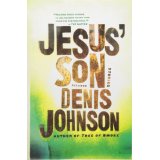By Kevin Rabalais
Strange the way that a favorite passage from a book can enter us like a pathogen. We find ourselves walking down the street on a Wednesday afternoon suddenly hearing the rhythms of Father Mapple’s sermon in Moby-Dick. We turn the corner and see Cotter Martin racing from the Polo Grounds with that pennant-winning homerun ball he catches in the opening chapter of Underworld. Or maybe we find ourselves stumbling around at home in search of our keys only to remember the eternal wisdom of Elizabeth Bishop on that mysterious art called losing.
It can be like a resurgence of malaria (if malaria carried nothing but mercy), the way scenes and characters and aphorisms come and go throughout our lives. Of course, that idea alone surfaces out of memory. It’s one of the many gifts I carry around thanks to a life of reading. For this one, I owe Czeslaw Milosz and a stanza in his Ars Poetica? that has resounded in my mind for more than a decade:
The purpose of poetry is to remind us
how difficult it is to remain just one person,
for our house is open, there are no keys in the doors,
and invisible guests come in and out at will.
At least once a year, Faulkner becomes the writer who lets himself in as my own invisible guest. I have no explanation for this. After a few chapters of Absalom, Absalom! or The Reivers, I find myself bewildered and can’t remember why I think of the great Mississippian at odd times, namely when I’m brushing my teeth or taking out the trash. Still, I carry on, trudging through dozens of nonsensical pages only to witness one of those trademark moments of brilliance, as when he writes of early settlers of Frenchman’s Bend in The Hamlet: “They supported their own churches and schools, they married and committed infrequent adulteries and more frequent homicides among themselves and were their own court judges and executioners.”
Still, with Faulkner (at least as far as this reader is concerned) one thing remains certain: within a few paragraphs, the nonsensical will take over. Despite this, I can’t help it: like an annual reminder on the calendar, or like someone begging for penance, I fall back into that world and its inimitable sensibility.
Lately when I browse shelves in bookstores and libraries, I find myself thinking of Borges, who said that the books he always wanted to buy were the ones he already owned. Rarely when I browse do I not visit the Js to check in on Denis Johnson, author of The Stars at Noon, Fiskadoro, Jesus’ Son and the National Book Award-winning Tree of Smoke. These books and other titles by Johnson I own, sometimes in multiple editions. For that reason, my check-ups in libraries and bookstores recently have started to feel more like stalking than paying respect. And so at the beginning of this year, I gathered a pile of Johnson’s work, including Seek, his excellent collection of reportage, and spent two weeks re-reading the work of a writer who deserves mention in any extended conversation about contemporary literature. Reviewing Fiskadoro in The New York Times, Eva Hoffman praised Johnson’s ability to “release language like a full-throated, many-voiced choir.”
But this (for now) is less about Johnson than about the way that following our favorite authors will open unexpected conversations, permitting chance encounters with writers we otherwise might not have met. It’s like one friend guaranteeing that we’ll enjoy the company of another. My start-of-the-year reading of Johnson’s work opened the door to Leonard Gardner and his slim masterpiece Fat City (1969), which New York Review Books Classics (a publisher that keeps the reading world in harmony) has recently rereleased.
In the introduction to this edition, Johnson writes about reading Gardner’s debut novel shortly after its publication. It pushed him over the edge, forcing him to realize that “it wasn’t a joke anymore, I was actually going to have to become a writer, I was too emotionally crippled for real work, there wasn’t anything else I could do…”
Johnson and a neighbor obsessed over this book about Ernie Munger, “a young fighter with frail but nevertheless burning hopes, and Billy Tully, an older pug with bad luck in and out of the ring. …We talked about every paragraph of Fat City one by one and over and over, the way couples sometimes reminisce about each moment of their falling in love.”
When it comes to Fat City, the closest comparisons I can think of are Johnson’s own mesmeric debut, Angels (“Leonard Gardner has something to say in every word I write,” he notes in his introduction), and the gritty realism of Nelson Algren. Then again, I’ve never encountered anything quite like Fat City. It’s the kind of book you read already looking forward to revisiting it years later. It’s about young and fading dreams and the pains of failure and love, and Gardner fills every page with humor and sadness. Each paragraph contains a gem, as when he writes of the down-and-out Tully:
He had lived in five hotels in the year and a half since his wife had left him… His room was high and narrow. Smudges from oily heads dampened the wallpaper between the metal rods of his bed. His shade was tattered, the light bulb dim, and his neighbors all seemed to have lung trouble.
This kind of introduction—reading Johnson, who offers us the work of Leonard Gardner—is one of the privileges we encounter as readers. It’s what allows us to hopscotch through time and across borders.
To receive updates from Sacred Trespasses, please subscribe or follow us on Facebook or Twitter.



